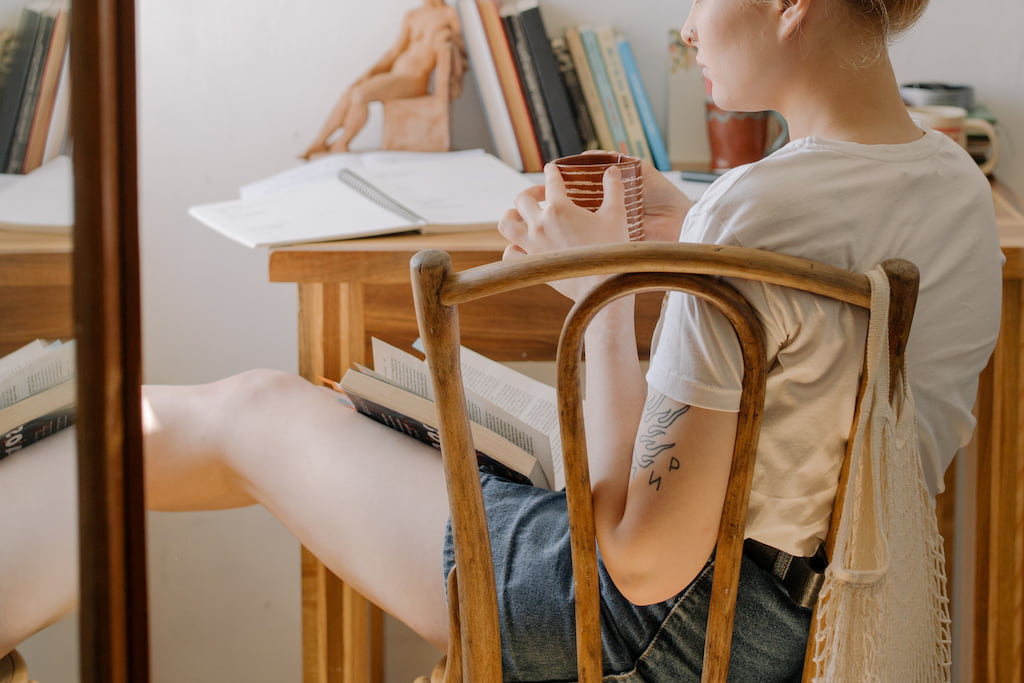Anxiety and the Re-Opening Process

Contents
These days, we have started to hear the longed-for echoes of our ‘old life’. Yet, there is one big difference: hugging is no longer as safe as it used to be.
We have gone through a period that was hard for us to get used to. An ‘enemy’ that we had not known or expected infiltrated our streets, homes, and minds, and kept us from going about our everyday lives. And then, the ‘new normal’ appeared before us in an unfamiliar shape.
Despite the many challenging aspects of this process, at least the need for all people to feel safe was seen and acknowledged. We were given a simple solution to meet this need: staying home.

How do you feel about staying at home?
Staying home was a rather peaceful experience for some of us, but overwhelming for others; regardless, it allowed many of us to feel safe. Furthermore, we were able to do this without being judged or questioned; we were even supported and applauded for it.
In fact, staying home resembled being a child in one way: we did not need to make important decisions. As children, our caregivers take on the duty of making sure that we are well and healthy, that our bellies are full and that we are alive, to ensure that we are safe and well by drawing boundaries as we learn about life. This is one of the aspects of childhood that many people long for: it was a time when responsibilities, decisions, measures, and even dangers occured and were resolved in the adult world, external to us. Ideally, our caregivers made us feel safe while all of this was happening.
The stay-at-home period was sort of like childhood because there were boundaries drawn to make us safe and we could be well as long as we stayed within those borders. However, while the idea of staying at home remains an option, it is no longer acknowledged by everyone as a solution. The positives of staying at home–using it as an opportunity to pause, being in unity with others, the emphasis on common concerns and needs, the calm of the streets–have suddenly been turned upside down. Staying home no longer resembles our childhood because those sharp boundaries drawn for us have now become blurred. It is as if our parents, who had been setting the rules to protect us, yielded to their grown-up friends whose opinion differed from theirs, and told us it was ‘our choice’ whether or not to stay home. Everyone has started to make their own decisions and lives have begun to differ from each other.
During this period, have you thought about how this change made you feel?
From childhood to adulthood
If we compare staying home with childhood, we can see this current transition period as adolescence. Adolescence is, for most of us, a period full of anger and frustration, because we face the fact that we need to grow and differentiate, but we do not yet feel competent enough to be fully part of the adult world. Whilst feeling weak and insufficient due to the confusion of being neither a child nor an adult, we are expected to act like adults. Just like today, as we do not yet feel competent or ready to face a world with a dangerous virus outside, yet we are forced to stand on our own two feet…
Our worries in the new normal
Now, it is entirely up to us, and this can be quite worrying for some. The peace of being at home has been replaced by guilt, worry, decisions and fears. How will I get used to my old life with these new fears? Can I go out now? Am I being too careless? Do I look too scared? What am I missing out on? How much longer can I stay at peace in this abnormal state while everyone is getting ‘back to normal’?
It is extremely normal to ask yourself these questions. All of this might be challenging for you. You might feel indecisive, trapped, and angry. You might even encounter feelings which you do not recognize or cannot interpret during this transition period. It might be that this period reminds you of other times in your life when you experienced similar situations, and it might make you remember your feelings from those periods. Perhaps there were situations, people, and responsibilities that you could avoid while you were at home.

Embrace yourself and your feelings
No matter what you are going through, try to lend an ear to yourself. How does your current situation make you feel? What positive feelings about this period are coming to an end? What are you losing with the change? What are your needs in this period? Can you express them? See what you can or do not want to do to fulfill them. When it seems hard, try to voice it.
You can try to use a skill which you acquired when transitioning from childhood to adulthood. Maybe you can say “no” and draw your own boundaries, just as you did then, to unconsciously differentiate yourself from your family. Asking yourself questions about your needs, wishes, worries and anger, and defining your current state can help you to make decisions, express your state and draw boundaries. Once you draw your own boundaries, you can experience the pleasure of the gains of adulthood, as well as grieving over the losses of your childhood, as you have been doing for years.
So, in which ways will this be a positive period for you? What are things you are excited about while approaching the end of your stay-at-home period? What kind of liberties will this transition period bring you? From people, feelings, and routines you have missed? Who will you be able to see again? What will you regain?
Whatever your answer is to these questions, there will be a renewed, flourished, stronger and unique you when all this is over. What has happened so far might have brought you to a better or perhaps more challenging place. Nevertheless, you have overcome many difficulties in every way, and you are still alive. You have evolved; perhaps you are tired, but you are stronger now. How does it make you feel to think this way?
Look after yourself
Remember how you initially handled the uncertainty and fear shaped by this process and the concern about your health and safety! You looked at yourself, your inner resources; you were patient, maybe you experienced acceptance or maybe gratitude. You can do all this now as well. Do not forget that your ability to accept change has strengthened, just like a muscle. You are now stronger, better able to adapt, and more tolerant of uncertainty. If you are having a hard time, you should know that you can still stand on your two feet during this new order by listening to yourself, looking after yourself and showing compassion to yourself. You can overcome this process.
Translator: Ebru Peközer





